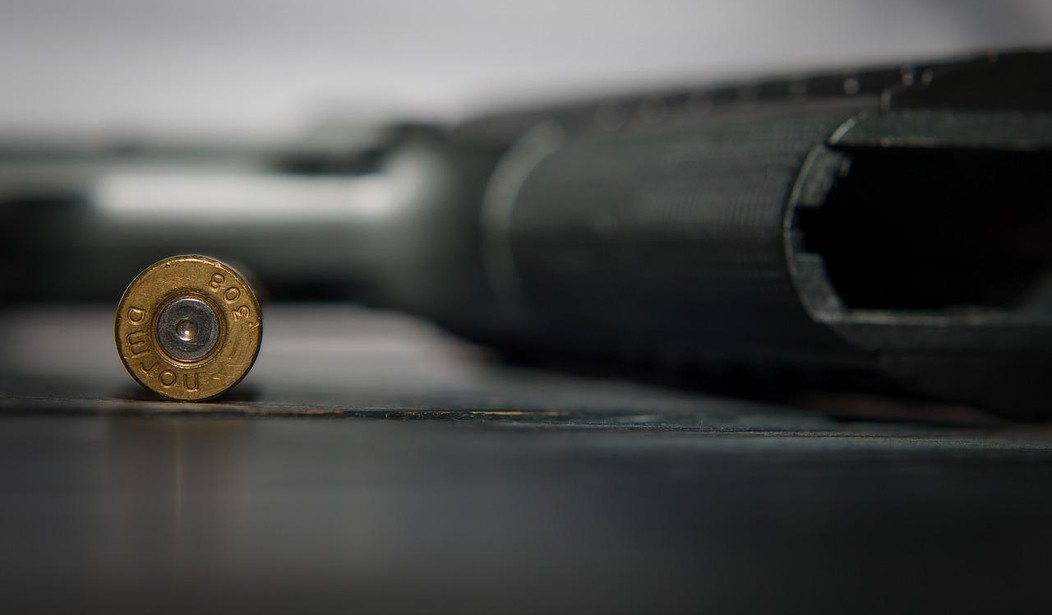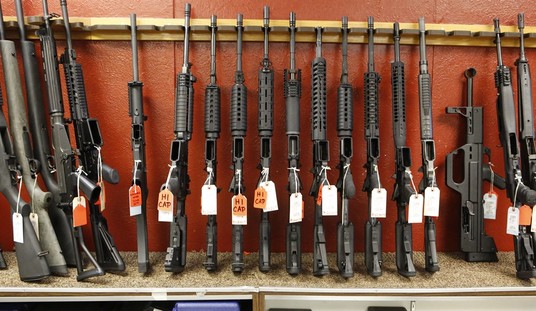The Supreme Court’s decision in New York State Rifle & Pistol Association has supercharged the legal debates over gun control laws since it was handed down about a month ago, with blue states rushing to adopt new restrictions on the right to keep and bear arms and Second Amendment organizations racing to file suit to stop the infringements from taking effect.
But the decision also impacted virtually every case already in the court system before the Bruen decision was handed down, with the Supreme Court vacated four cases that it had been holding in conference and ordering lower courts to re-hear the challenges with an eye towards the Court’s “text, history, and tradition” test instead of the two-step, tiered scrutiny test adopted by most courts after the Heller decision.
Now the Second Circuit Court of Appeals has vacated a case of its own, sending it back to a U.S. District judge in New York for a new hearing based on the Supreme Court’s guidance. The case, known as Taveras v. New York City, takes issue with the city’s own subjective licensing standards, which in this case, prevented Alan Taveras from obtaining a premises license “allowing” him to keep a rifle or shotgun in his home for self-defense.
In approximately 2018, Alan Taveras applied for a license to possess a rifle or shotgun for self-protection at his residence in the Bronx, New York. Licensing officers within the New York City Police Department denied Taveras’s application, citing his August 2011 arrest for domestic violence, a corresponding order of protection against him, and a November 2011 domestic violence complaint against him by the same victim. The order of protection expired in February 2012, and the criminal charges were ultimately dropped.
We don’t know all of the details of what led to the order of protection and arrest on domestic violence charges, but we do know that the order of protection was allowed to expire without being renewed and the criminal charges against Tavares were ultimately dropped. He was never convicted of a disqualifying offense, in other words, but you don’t have to be convicted or even accused of a crime to be denied a premises license under New York City’s subjective and arbitrary licensing laws.
Both the trial court and the Second Circuit originally found in favor of New York City’s gun law, ruling that under intermediate scrutiny “the challenged regulations do not burden what we have held to be the ‘core’ protection of the Second Amendment,” which ‘is the ‘right of law-abiding, responsible citizens to use arms in defense of hearth and home,’ because the City’s regulations restricting firearm access for those with a history of domestic violence burden only those who are not law-abiding and responsible.”
Consistent with the second step of the analysis dictated by this Court’s prior precedent, the district court proceeded to apply intermediate scrutiny to the licensing provisions at issue.
Ultimately, the district court held that the City’s regulations easily satisfy intermediate scrutiny because they are appropriately tailored toward achieving the City’s important public-safety interest in keeping firearms out of the hands of those with histories of domestic violence.
The Second Circuit panel gets a little snippy in accusing the Court of originally adopting that two-step test and then reversing course in Bruen, but as Clarence Thomas wrote in his majority opinion, SCOTUS never signed off on the test adopted by the lower courts. From page 10 of the opinion:
Despite the popularity of this two-step approach, it is one step too many. Step one of the predominant framework is broadly consistent with Heller, which demands a test rooted in the Second Amendment’s text, as informed by history. But Heller and McDonald do not support applying means end scrutiny in the Second Amendment context. Instead, the government must affirmatively prove that its firearms regulation is part of the historical tradition that delimits the outer bounds of the right to keep and bear arms.
… Heller’s methodology centered on constitutional text and history. Whether it came to defining the character of the right (individual or militia dependent), suggesting the outer limits of the right, or assessing the constitutionality of a particular regulation, Heller relied on text and history. It did not invoke any means-end test such as strict or intermediate scrutiny. Moreover, Heller and McDonald expressly rejected the application of any “judge-empowering ‘interest-balancing inquiry’ that ‘asks whether the statute burdens a protected interest in a way or to an extent that is out of proportion to the statute’s salutary effects upon other important governmental interests.’”
The Second Circuit may be throwing some shade at SCOTUS, but they’re ultimately complying with the Court’s directive. That means that it will now be up to New York City to prove that its subjective licensing laws for keeping guns in the home comport with the text, history, and tradition of the right to keep and bear arms. That’s going to be a tall order, frankly, given the subjective nature of the permitting process.
The NYPD Licensing Bureau doesn’t even bother to list all of the eligibility requirements on its website, limiting itself to “some of the main requirements” like “you must be at least 21 years of age, of good moral character, and not in a condition — mental or physical — that would make it unsafe for you to possess a firearm. A background check is conducted, in which numerous factors are considered, including, but not limited to, any history of arrests, summonses, domestic violence, orders of protection, mental illness, or mental/physical conditions and any medications taken in connection therewith.”
In fact, the website doesn’t even tell applicants where they can find all of the requirements, letting them know that “relevant statutes and rules include, but are not limited to, New York State Penal Law Section 400.00; Title 18 of the United States Code, Sections 921 and 922; Title 10 of the New York City Administrative Code, Section 301, and the sections immediately thereafter; and Title 38 of the Rules of the City of New York, particularly Chapters 3 and 5.”
The city makes it impossible to determine if an applicant is eligible and gives law enforcement sweeping power to deny anyone and everyone who does apply for permission to keep a firearm in the home; one of the core purposes of the fundamental right to keep and bear arms. New York City’s law is an outlier when it comes to the history and tradition of our Second Amendment rights, and I don’t think it’s going to survive a post-Bruen court challenge… which probably explains the pissy attitude and snark exhibited by the three judge panel on the Second Circuit that vacated the Tavares decision and sent it back to the trial court for a redo.









Join the conversation as a VIP Member